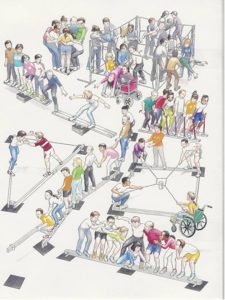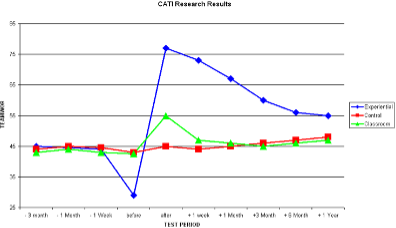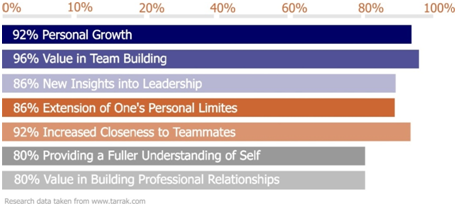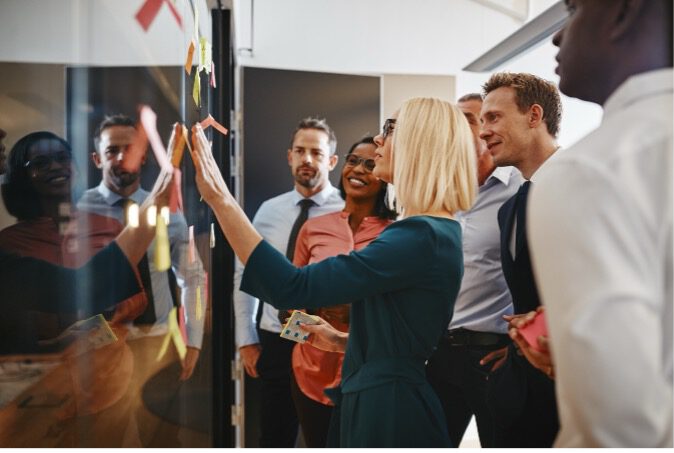Experiential Learning

Why Experiential Learning?
The long term results of Experiential Learning have been researched and studied by many academics – all of whom agree, that it is the most effective method of learning and that it guarantees a long term, behavioural, positive change in the performance of the learner – as the graph below demonstrates.
 Scientific Research
Scientific Research
This chart shows that Classroom training provides a small increase in teamwork that evaporates.
Experiential Training provided a remarkable 77% boost in the Team Development Index that continues to have residual effects up to 1 year, without follow up.
All research was performed by Dr. Simon Priest PhD 25 Year Experiential Education Expert. Publisher of over 12 books on the subject and on the Board of Advisors for PLAYTIME Inc
It is important to recognise that for new initiatives to be truly successful then the delivery mechanism needs to cater for different learning styles and activities and interventions.
All trainer led workshops will be designed to enable participants to learn through ‘doing’. The outcome for any workshop will be to provide participants with the confidence, ability and desire to implement their new skills, thinking and or strategies as soon as they return to the workplace. In this way, ‘change’ will become behavioural and lasting, and learning will be transferred from the classroom to the work environment.
SO….WHY?…Experiential Learning…?

- Team Creativity and High Performance Dynamics
- Increased Problem Solving Skills
- Enhanced Trust of each other
- Increased Personal Confidence
- The Art of Delegation and Empowerment
- Team Excellence and Team Spirit
- Effective Communication and Empathy with others
- Rapport Building + Relationship Management
- Personal Leadership
- Project Management
- Mutual Understanding
- Outstanding Motivation
- Increased Leadership and Followership Skills
- Clear measurement of skill and knowledge transfer
- Shared Vision enabler
- Enhanced Emotional Intelligence through ‘Self’ and ‘Other’ Awareness
- Planning Prioritisation Techniques
- Strategic Planning Methodology
- Project Planning and Tracking Tools & Charts
- SMART Objectives
- Mission Statements and Vision Statements
- Goals, Objectives, Strategies, tactics
- Team Dynamics – Planning
- Change Team Dynamics – Planning
- Increased Team Working and Camaraderie
- Increased Awareness of Team Dynamics
- Visionary and Creative Thinking
- Relationship Building
- Management of Diversities and building of Respect for others
- High Performance Emotionally Intelligent Teams
- Maximised Team Member Support
- FUN!
Sectors

Corporate & Public Sector
Helping HR and L&D teams develop their people through Transformational Training

Health Care
Applying Emotional Intelligence and Positive Psychology to our Patient Care achieving better outcomes

Military
Creating leaders at every level with learning development programmes that meet your needs

Prisons, Young Offenders and Prevention
Mobile Team Challenge helps to reduce offending behaviour and changing the futures of inmates for the better


